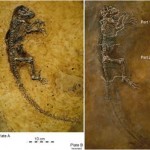 When a new species comes to light, its effect on the arrangement of its family tree might be better measured by statistics than by headlines. In a study of primates and flightless dinosaurs, researchers at Bristol University, UK, have found that the likelihood of any given find shaking up the family tree depends on how complete that tree was to begin with.
When a new species comes to light, its effect on the arrangement of its family tree might be better measured by statistics than by headlines. In a study of primates and flightless dinosaurs, researchers at Bristol University, UK, have found that the likelihood of any given find shaking up the family tree depends on how complete that tree was to begin with.
“What we’ve done is look at the two most intensively studied groups,” Tarver says, and highlighted differences between the relatively stable catarrhine family tree, and the less certain family history of the dinosaurs. He says that statistical analysis could help to indicate which areas in a given family tree are already well-sampled and which might yet reveal more influential finds.